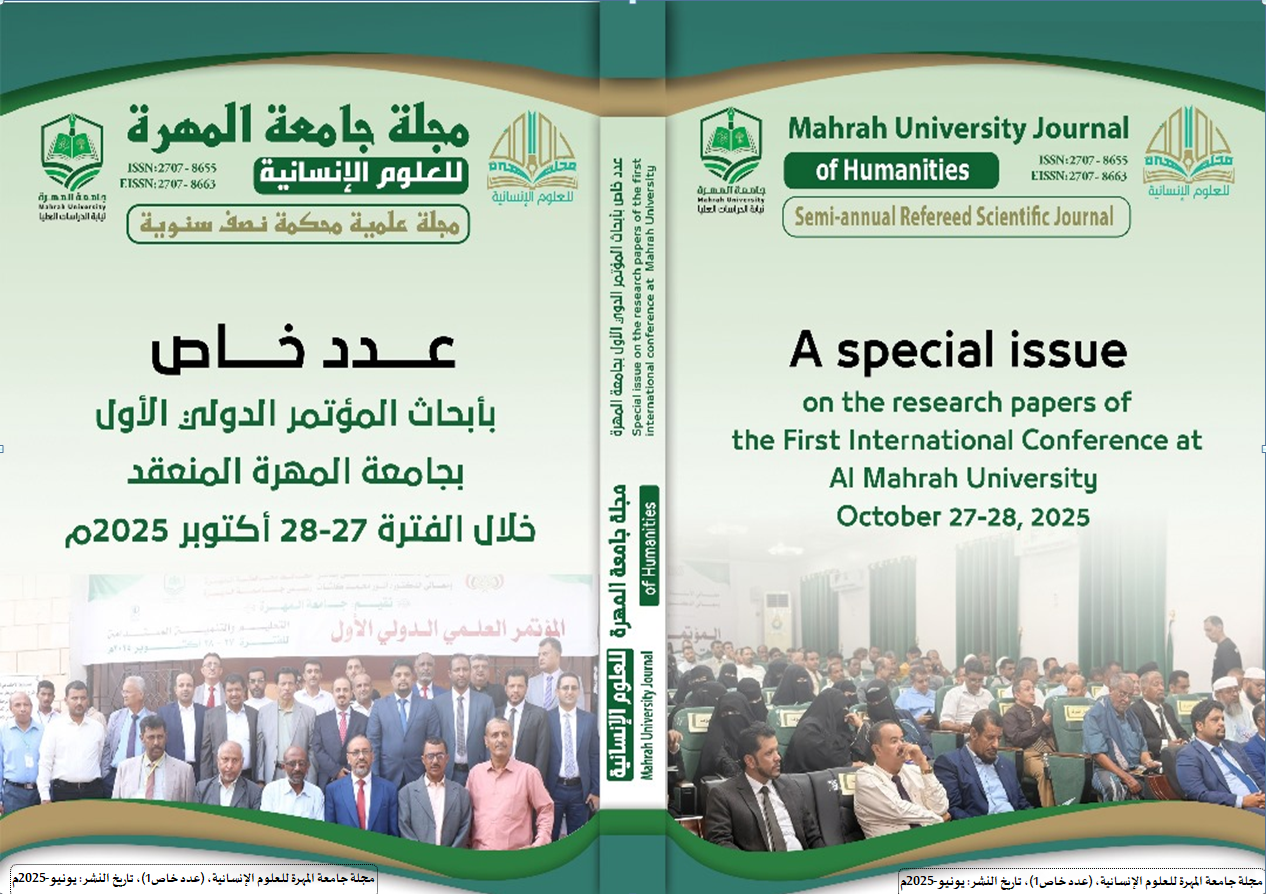Effectiveness of a Technology-Based Program in Science for Eighth-Grade Students "Shaheed Sami Hijazi Secondary School for Boys as a Model"
DOI:
https://doi.org/10.71311/.v6iS1.201Keywords:
Smart technology, chemical concepts, skillsAbstract
The aim of the current study is to explore the building of a smart technology-based program to gain basic chemical concepts and develop skills in the unit of our life chemistry with the chemistry book scheduled for the basic eighth grade students for the second semester of the year (2023/2024) The research sample consisted of 48 students from the male martyr Sami Hijazi High School of General Education in Tulkarm for the academic year (223/2024) and 22 students from a female officer's sample who teaches the unit in the usual way; (26) students with an experimental sample subject to the smart technology-based programme, the group has been homogenized in terms of (degree of educational achievement in chemistry for the first grade and the previous year - age - type of education (general); The programme shall be from (8) sessions to gain the basic chemical concepts identified after analysis of the unit's content; The sessions were applied over five weeks at a rate in the scheduled science classes, in the second semester. Results resulted in statistically significant discrepancies between control group score averages and pilot group in dimensional measurement on my test (conceptual acquisition - skills) in favour of the pilot group, and the ETA equation confirmed that there was a significant volume of the impact of experimental treatment on the overall degree of skills metric. (87.9%), indicating the programme's effectiveness in developing skills, the research recommended that the use of smart technology in teaching natural sciences should be applied as an effective method of achieving skills development goals at various levels of education, including the higher basic level, especially in the current circumstances, which prevent the completion of the educational process in its basic form.
Downloads
References
أبو هولا، امفضي؛ المطيري، محمد عبد الحافظ (2012). أثر برنامج تعليمي حاسوبي في تغيير المفاهيم البديلة في مادة العلوم لدى طلاب الصف الثاني المتوسط في المملكة العربية السعودية، مجلة جامعة دمشق، 26(4)، 347-389.
ثروت (2024): إعادة هندسة منظومة التعليم الفلسطينية، مقالة منشورة جريدة القدس اليومية ، العدد (19576)، ص11
حسن، إسماعيل (2023): الذكاء الاصطناعي في التعليم، مركز اليوبيل للتميز التربوي ورئيس الجمعية العربية للروبوت والذكاء الاصطناعي.
الحسيني، بشاير (2023): دور الذكاء الاصطناعي في تعليم العلوم لتلاميذ المرحلة الابتدائية لتحقيق رؤية دولة الكويت 2035، المجلة التربوية، العدد 108، ج1، ص 154-175
الخليلي، خليل؛ وآخرون (1996). تدريس العلوم في مراحل التعليم العام . دبي: دار القلم
عبد اللطيف ، أسامة(2020): فاعلية نظام تدريس قائم على الذكاء الاصطناعي لتنمية الفهم العميق للتفاعلات النووية والقابلية للتعلم الذاتي لدى طلاب المرحلة الثانوية، مجلة البحث العلمي في التربية، ع21, ج4، 307 – 349
علي، حسين(2023): تنمية بعض مهارات إدارة الفصل اللازمة لمعلمي المرحلة الأولي من التعليم الأساسي على ضوء المعايير القومية للمعلم،مجلة البحث في التربية وعلم النفس،مجلد38، ع1، ص 577-656
صفراني، عائشة وفرحي محمد (2012): التنوع المعرفي وأثره في أداء الأفراد دراسة حالة جامعة الأغواط، مجلة دراسات – العدد الاقتصادي -المجلد 3، العدد 2، ص 56-86
الفراني، لينا (2020): تضمين تطبيقات الذكاء الاصطناعي في مدارس المرحلة المتوسطة من التكيف إلى الاعتماد
الغامدي، أريج (2014): دمج مهارات التفكير في التدريس ، الإدارة العامة للتدريب الكيلاني .
المهدي، مجدي( 2022): التعليم وتحديات المستقبل في ضوء فلسفة الذكاء الاصطناعي ، مجلة تکنولوجيا التعليم والتعلم الرقمى ص 99 – ص 140 https://jetdl.journals.ekb.eg/
الأجنبية
.Jin, L. (2019). Investigation on Potential Application of Artificial Intelligence in Preschool Children's Education, Journal of Physics: Conference Series.
Holder, Chris , Khurana, Vikram and Watts, Mark.(2018)." Artificial Intelligence: Public Perception, Attitude and Trust".[Available Online] Retrieved 24 July 2020 from https://d1pvkxkakgv4jo.cloudfront.net/app/uploads/2019/06/11 090555/Artificial-Intelligence-Public-Perception-Attitude-andTrust.pdf
Pokrivcakova, Silvia.(2019).''Preparing Teachers for the Application of AI-powered Technologies in Foreign Language Education".Sciendo,p.p. 135-153
Kwon, So Young ;Cifuentes, Lauren (2009) "The Comparative Effect of Individually-Constructed vs. Collaboratively-Constructed Computer-Based - oncept Maps" Computers & Education, v52 n2 p365-375 Feb2009 . Eric
Rohrer, D., & Taylor, K. (2006). The effects of overlearning and distributed practice on the retention of mathematics knowledge. Applied Cognitive psychology 20, 1209-1224.
الملاحق (1) مقياس مهارات التفكير حياتنا كيمياء:
- https://forms.office.com/r/GbUgndVpDZ
مقياس المفاهيم:

Downloads
Published
How to Cite
Issue
Section
License
Copyright (c) 2025 عائشة مشهور حسن صنوبر

This work is licensed under a Creative Commons Attribution 4.0 International License.
Copyright and Licensing
copyright is retained by the authors. Articles are licensed under an open access Creative Commons CC BY 4.0 license, meaning that anyone may download and read the paper for free. In addition, the article may be reused and quoted provided that the original published version is cited. These conditions allow for maximum use and exposure of the work.

